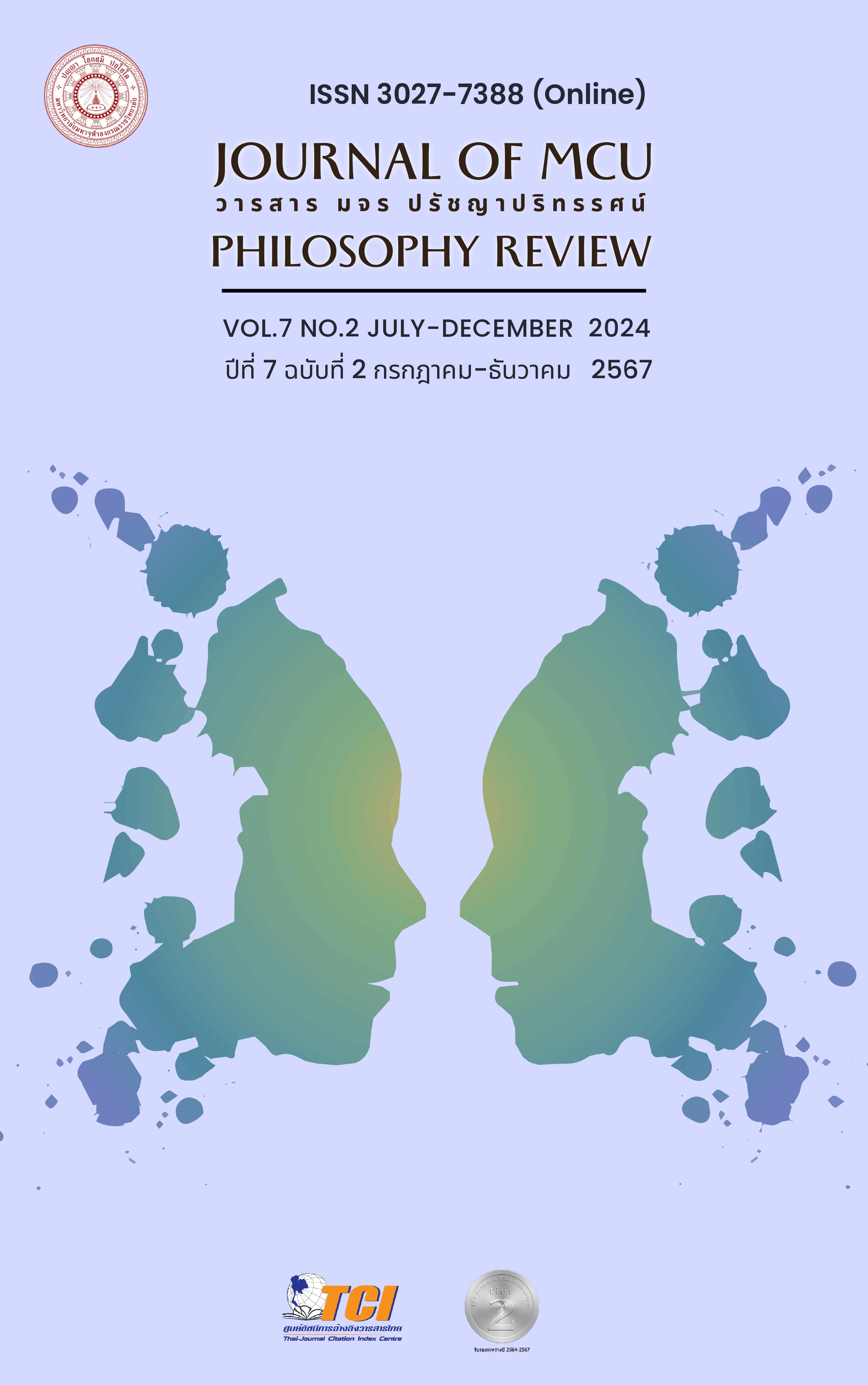The Current Situation and Improvement of Employee Job Satisfaction in Enterprises - A Case Study of Shengshi Investment Company
Main Article Content
Abstract
This article aimed to study: (1) to explore the current situation of employee job satisfaction in Shengshi Investment Company; (2) to propose countermeasures to improve employee job satisfaction in Shengshi Investment Company.
By using the quantitative analysis method, based on the two-factor theory, taking the employees of Shengshi Investment Company as the research subject, this paper studied the status quo of employee satisfaction in the enterprise. The data of enterprise employee satisfaction was obtained by the questionnaire survey, and a total of 175 valid questionnaires were obtained. In order to draw conclusions from the data, this study used SPSS data analysis software to analyze the data, and used ANOVA, correlation analysis, regression analysis to test the research hypotheses.
The conclusions are as follows: first, the overall job satisfaction of the employees of Shengshi Investment Company is at a medium level, and the level of employee satisfaction needs to be improved. Secondly, Shengshi Investment Company can improve the level of employee job satisfaction through five aspects, which are salary level, interpersonal relationship, management system, job achievement and job promotion. The company should ensure fairness of the salary and provide development opportunities for the employees, shape the harmonious working atmosphere and clarify the relationship between the rights and responsibilities of the employees, strengthen the company's management and system construction, focus on the employees' sense of achievement at work, and expand the channels of promotion at work, so as to make the employees feel that the company attaches great importance to them, thus increasing the satisfaction level of the employees.
Article Details

This work is licensed under a Creative Commons Attribution-NonCommercial-NoDerivatives 4.0 International License.
บทความที่ได้รับการตีพิมพ์เป็นลิขสิทธิ์ของวารสาร มจร ปรัชญาปริทรรศน์
ข้อความในบทความที่ได้รับการตีพิมพ์ในวารสาร ถือเป็นความรับผิดชอบของผู้เขียนบทความ และข้อคิดเห็นนั้นไม่ถือว่าเป็นทัศนะและความรับผิดชอบของกองบรรณาธิการวารสาร มจร ปรัชญาปริทรรศน์
References
Cao, L. Q. (2019). Research on the improvement of incentive program for knowledge-based employees in Company. Guangxi Normal University.
Chen, L. (2019). Exploring the important role of employee satisfaction survey inenterprise management. New Business Weekly (5), 74, 76.
Cui, J. (2018). A study of technical employee turnover in IT companies based onemployee satisfaction perspective. Inner Mongolia Agricultural University.
Deng, X., & Shi, Y. (2020). A survey report on organizational loyalty of post-90s new generation employees. Business and Management (1), 77-81.
Dong, X. (2020). Analysis of Employee Satisfaction and Influencing Factors in a Dental Hospital in Shandong Province. Jiangsu Health Career Management, 31(12), 1643-1647.
Fan, L.,Z, Zhang.,F.,J. Zhang & Zhi.,H.,H. . (2022). A study on the correlation between work immersion and job satisfaction among operating theatre nurses. General Practice Nursing (30), 4299-4302.
Hieu, M. V., & Nwachukwu, C. (2021). Influence of entrepreneur competencies onprofit ability and employee satisfaction. International Journal of Management and Enterprise D evelopment, 20(1), 105-112.
Jordan, D., Nielsen, & Jeffery, A. (2020). The mode rating role of calling in the work–family interface:Buffering and substitution effects on employee satisfaction. Journal of Organizational Behavior, 41(7), 31-32.
Li, L. Q. (2021). Fund industry needs to focus on three major issues to achieve high-quality development. 21st Century Business Herald, 009.
Li, M. (2021). Research on Job Satisfaction Enhancement Strategies for Knowledge-based Employees in HC Footwear Industry. Master's thesis, Huaqiao University.
Liang, Q. (2019). A study on the optimization of flexible benefits and the improvement of employee satisfaction. Research in Technology Economics and Management (2), 116-121.
Liu, J. Y. (2019). Research on employee satisfaction in technology companies from a multidimensional perspective. Social Science Column, 34(4), 49-53.
Liu, N. (2022). A study on the countermeasures to improve the job satisfaction offrontline employees in Company. Northeast Petroleum University.
Ou, Y, Q. (2022). Discussion on the path of improving employee satisfaction andloyalty in enterprises. Chinese and foreign enterprise culture (06),208-210.
Qian, J. (2021). Research on Countermeasures of Core Employee Turnover in State-Owned Modeling Enterprises. China Market (32), 19-21.
Shi, F. (2022). Factors affecting employee satisfaction in enterprises and strategies for improving enterprise management. Mall Modernization (17), 67-69.
Tang, L,Q. (2019). Factors affecting employee satisfaction in private enterprises and improvement strategies. Small and Medium-sized Enterprises Management and Technology (Lower Decade) (01),102+104.
Thant, Z. M., & Chang, Y. (2020). Determinants of Public Employee Job Satisfaction in Myanmar: Focus on Herzberg’s Two Factor Theory. Public Organization Review, 21.
Wang, H., Yang, J., & Li, Y. (2019). The Curvilinear Relationship and MechanismBetween Compensation and Employee Job Satisfaction. Economic Management, 41(7), 105-120.
Wang, J. & Xu, D. Z. (2017). Talking about the development and structural validation of job satisfaction scale for secondary teachers. Research on Vocational Education (11), 45-49.
Wang, Q. (2020). Study on the influencing factors and countermeasures of jobsatisfaction of new generation employees. Financial News (22), 56-57.
Xu, D. (2022). An empirical analysis of bank employee satisfaction and motivational responses. Old Brand Marketing (18), 80-82.
Xu, K.S. (2022). Research on the improvement strategy of grassroots employees'satisfaction in the head office of Bank of Lanzhou. Master's thesis, Lanzhou University.
Xu, Q. (2015). An empirical analysis of the effect of knowledge-based employeesatisfaction on job performance. Statistics and Decision Making (5), 117-119.
Zhang, X. (2017). A study on the countermeasures of employee satisfaction for jobperformance in small and medium-sized private enterprises. Fujian Quality Management (17), 2.


